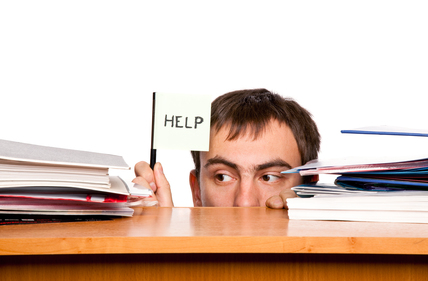Exercise: The Ultimate
Stress-Reliever
Perhaps
it’s the result of having a new job, a new mate, or a new baby.
You are overwhelmed with a feeling of excitement. Yet, you feel
inadequate as well. As a result, you are under a tremendous amount
of stress. At times, you might feel as if there’s no relief in
sight—as if you’re on a treadmill which shows no signs of
stopping anytime soon.
However,
the secret to effectively dealing with the stress may be to get your
body onto an actual treadmill. Exercise can be the key to stress
relief. It’s an obvious antidote to fatigue. It can make you feel
more energetic, improving your strength and resiliency. It has been
shown that individuals who are more physically fit often experience
fewer health troubles. In addition, exercisers are less likely to
suffer from psychological problems such as depression, binge eating,
or insomnia.
Without
exercise, you are increasing the likelihood that you will be
afflicted with colds, flu, or other medical problems. Aerobic
exercise in particular can improve your cardiovascular system and
decrease your anxiety level. Some studies have shown that, during
aerobic exercise, a chemical is produced in the brain which helps to
heal the body from stress-related conditions. You should exercise
at least three days a week for 30 minutes at a time in order to
improve not only your health but your mental outlook.
If you
find it difficult to become motivated to exercise, there are a number
of steps you can take. To begin with, you can join an exercise club.
Knowing that you’ll have to pay dues to a gym may make it more
likely that you will actually end up exercising. You might also
consider enlisting the aid of a personal trainer. A trainer can
provide powerful motivation, pushing you to complete exercises you
never thought possible. Another idea is to join an exercise class.
There, you’ll meet other people who are in a similar position. The
camaraderie that develops between exercisers can help to reduce your
stress level.
In
general, exercise should make you feel less anxious. Your muscles
become less tense and you will be less shaky after a round of
exercise. It has also been shown that exercise leads to an hour and
a half to two hours of relaxation response. This has also been
referred to as the endorphin response. As a result, your mood will
improve, enabling you to deal more effectively with stress.
Exercise
can also improve your self-image. You’ll experience greater
self-worth, which will, in turn, reduce your stress level. A
confident person is an individual who knows how to handle stress
without becoming flustered. As a result of exercise, you may also
end up eating better. Your improved menu may also prove to be a
stress reliever. For instance, if you give up caffeinated drinks,
you might become less jittery.
In
addition to your sessions in the gym, you should be looking for
additional opportunities to exercise. This could mean taking the
stairs instead of the elevator, walking to work instead of driving,
or playing touch football in the backyard with your children. The
point is to get moving—and keep moving—at every available
opportunity.
Exercise quickens the blood flow to your mind, offering the brain
additional sugars and oxygen which can be important if you are
concentrating. Exercise can also clear out waste products from the
brain which can result in unclear thinking. You will also feel a
greater sense of well-being as a result of exercise.
As has
been shown here, exercise is beneficial for both the body and the
mind. As a result, it can relax you when other techniques fail. By
engaging in exercise, you free up your mind, enabling you to
concentrate better and work more efficiently. Chances are you will
not only feel better, you will look better as well. With your brain
under control, you should experience less stress. Granted, exercise
takes time and requires discipline, but it is well worth the
exertion. The good feelings you get from a powerful exercise session
can actually last for days. You may find that you actually look
forward to working out because of the tremendous benefits it brings
with it.




